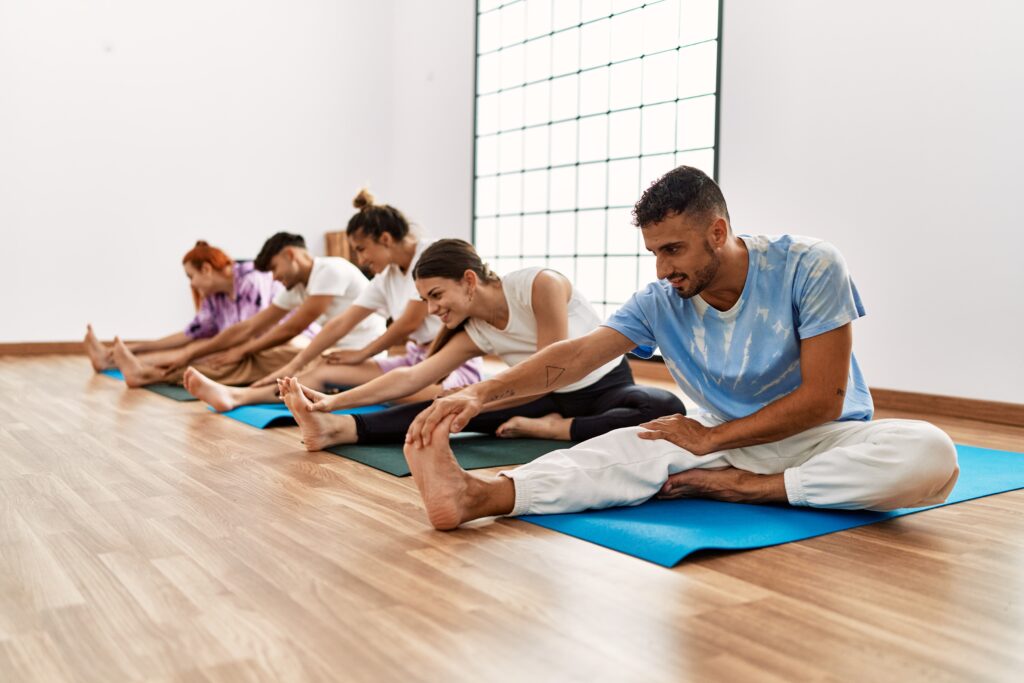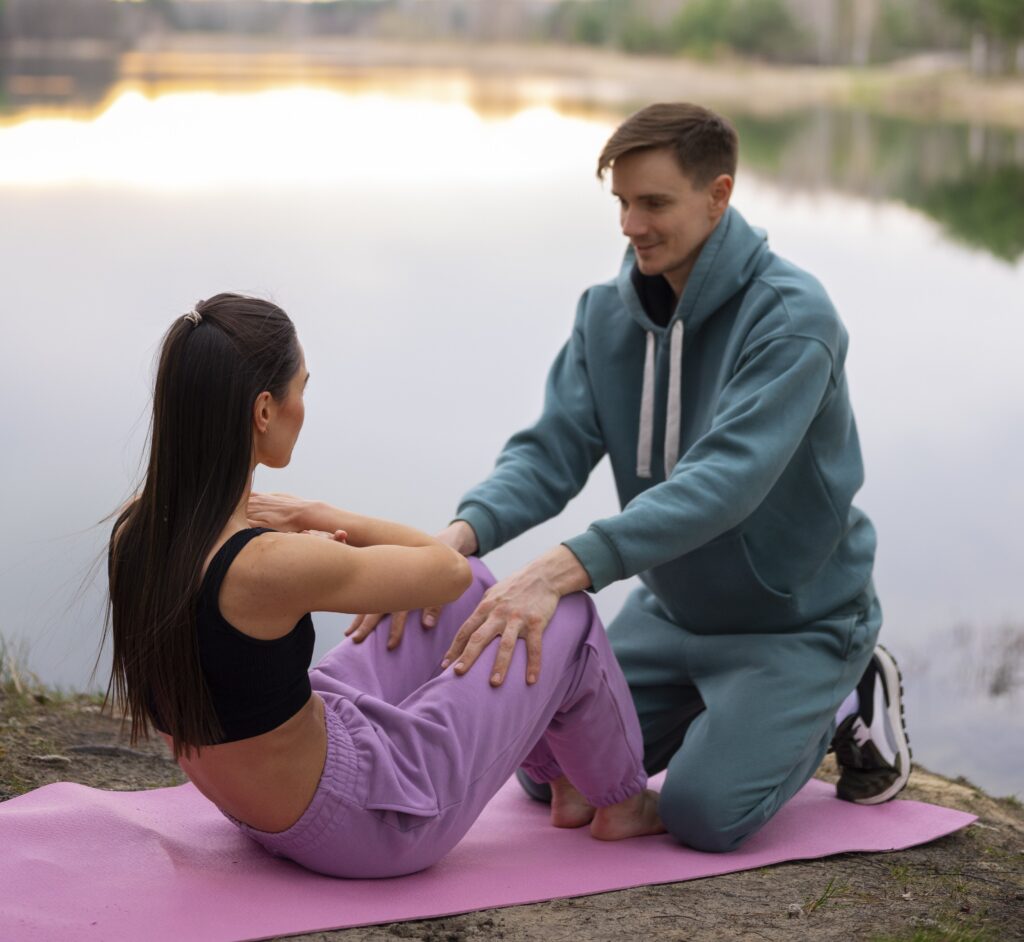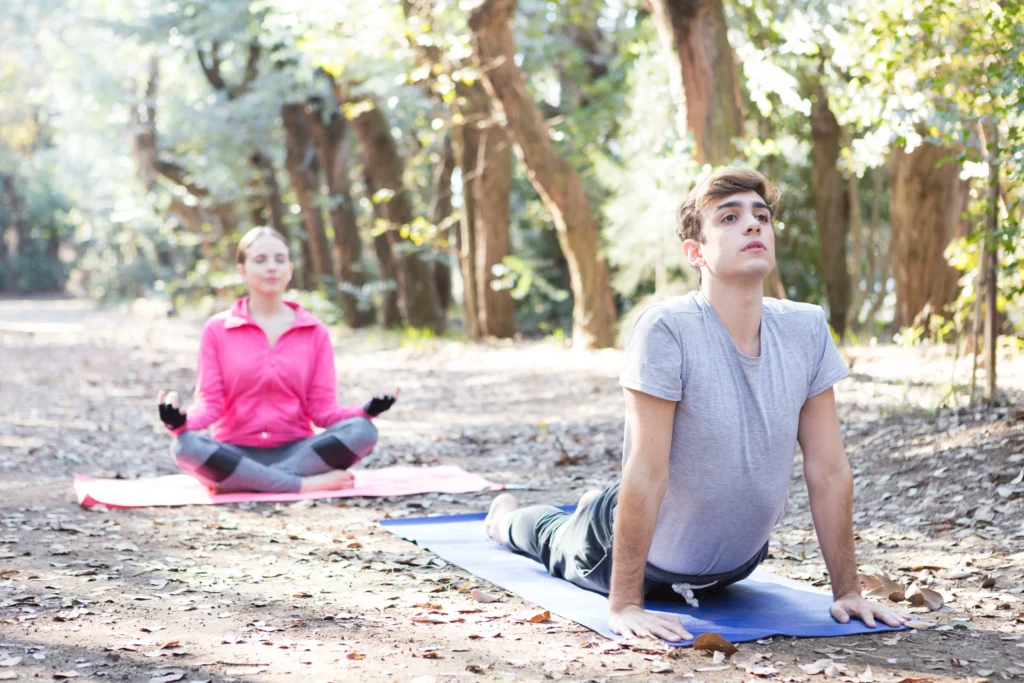Small group classes
Small group classes in Therapeutic Yoga offer a personalized and supportive environment tailored to individual needs, with a maximum of 6–8 students per class. This limited size allows instructors to provide more focused attention, ensuring that each participant practices safely and effectively based on their physical condition and goals.
Therapeutic yoga is designed to support individuals dealing with stress, chronic pain, injuries, anxiety, or other health conditions by integrating gentle movement, breathwork, meditation, and restorative poses. The slower pace and nurturing setting create a space for deep relaxation and healing. Instructors often adapt poses and use props to accommodate all body types and abilities, making the classes accessible for beginners or those with limited mobility.


1:1 private yoga therapy
1:1 Private Yoga Therapy offers highly personalized sessions tailored to an individual’s specific physical, emotional, or medical needs. Unlike general yoga classes, private yoga therapy focuses on therapeutic goals such as managing chronic pain, improving mobility, reducing stress, recovering from injury, or addressing conditions like anxiety, arthritis, or back problems.
In these one-on-one sessions, the therapist conducts a thorough assessment and designs a customized practice using breathwork, gentle movement, meditation, and restorative postures. The approach is slow, mindful, and supportive, allowing clients to progress at their own pace with full attention from the therapist.
4–6 Week Yoga Programs
Yoga Programs are structured, goal-oriented classes designed to address specific health and wellness concerns. These programs typically focus on mobility, stress reduction, breathwork, and pain prevention, offering a comprehensive approach to improving overall well-being.

Mobility: These sessions include gentle stretches and movements aimed at increasing flexibility, joint health, and range of motion. The program targets areas of the body that commonly experience stiffness or limited movement, helping to improve daily functional movement.
Stress Reduction: The program emphasizes techniques that help manage stress, including mindfulness practices, restorative poses, and relaxation exercises. Through calming sequences and mental focus, participants learn how to reduce stress levels and cultivate a sense of inner peace.
Breathwork: Focused breathwork practices (pranayama) are incorporated to improve lung capacity, calm the nervous system, and enhance mental clarity. Deep, controlled breathing helps regulate emotions and reduce anxiety.
Pain Prevention: Through specific movements and postures, the program teaches how to prevent and manage chronic pain, particularly in the back, neck, and joints. Techniques focus on strengthening muscles, improving posture, and alleviating tension that leads to discomfort.

Journaling system
Daily or Weekly Entries: Users record their thoughts, feelings, actions, and achievements regularly. This could include reflecting on specific goals, challenges faced, successes, and areas for improvement.
Goal Tracking: The system includes prompts to track both short-term and long-term goals. Individuals reflect on progress toward these goals, note what strategies are working, and adjust their plans as needed.
Self-Assessment: Prompts encourage critical evaluation of one’s performance, mindset, and emotional state. By acknowledging strengths and weaknesses, individuals can take actionable steps to improve their performance.
